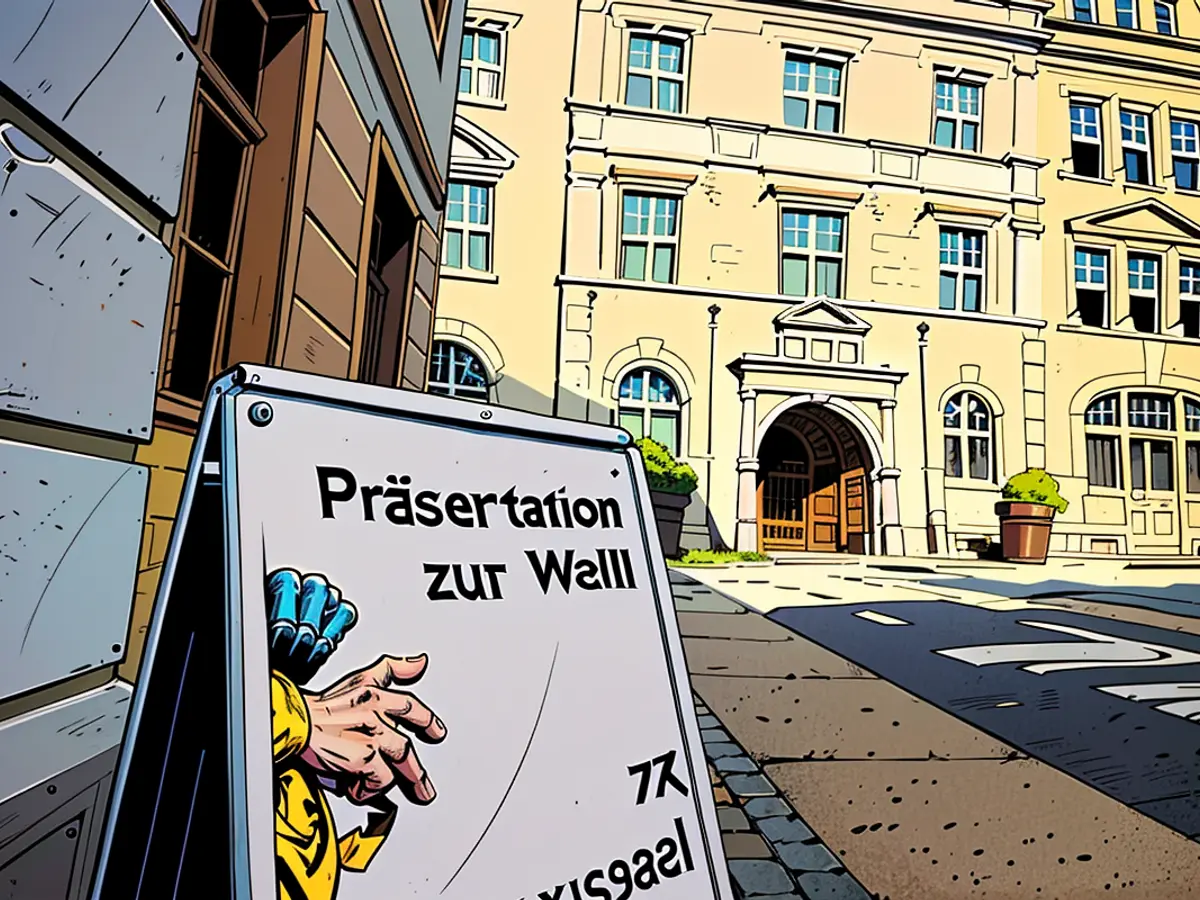Voting Processes - The AfD party wins in European elections but fails to secure district offices in Thuringia.
For the first time, the AfD emerged as the leading party in the European election in Thuringia. However, in the local council elections, all their candidates are expected to lose in the final votes. The CDU, which won with a smaller margin behind the AfD in the European election and is anticipated to win numerous mayor and city council positions, is seen as the victor by AfD party leader Mario Voigt. With a two-digit result in the European election, the Left Alliance in the Free State has made a significant breakthrough.
The prime minister of Thuringia's Left Party, Bodo Ramelow, was the biggest loser in this contest. Thuringia's Left Party leader Ulrike Grosse-Roethig deemed the outcome unsatisfactory. "During the past years, our federal party has faced challenges including continuous internal attacks on the party leadership," she said. "Currently, we are in a phase of rebuilding."
After counting all the voting districts, the AfD secured 30.7% in the European election in the Free State, putting them way ahead of the Christian Democrats with 23.2%. The CDU has not been the top party in a European election in Thuringia since reunification. The Thuringian AfD is officially designated as securely right-wing extremist by the state constitution protection and is being monitored.
Voigt attributed the large gap between his party and the AfD to voters of the traffic light coalition in Berlin and the bureaucracy in Brussels trying to convey a message.
In the municipal runoffs on Sunday night, Voigt predicted the CDU candidates would emerge victorious. They must compete against AfD candidates in six districts. "In Thuringia, people trust the CDU," Voigt informed the German Press Agency in Erfurt. The CDU had also gained support through their appealing candidates in places such as Erfurt, Eichsfeld, Wartburg, and Soemmerda.
In Erfurt, there was a change in power from the SPD to the CDU following 18 years. Mayor Andreas Bausewein from the SPD received 35.8%, while Andreas Horn from the CDU had 64.2%. Bausewein had been criticized heavily, particularly for his conduct in personnel disputes at the Erfurt Theater.
Thuringia's AfD leader Bjoern Hoecke maintained that, despite a "massive smear campaign," the AfD dramatically improved its performance in the European election compared to 2019.
Hoecke, AfD party and faction leader in Thuringia, is renowned for his opposition to the European Union in its current form. He had frequently declared in the past, "This EU must die so that the true Europe can live."
The Left Alliance came in third place in the European election in Thuringia with 15.0%. In this Free State, a Left Party state association was only formed in mid-March.
The SPD, with 8.2%, the Left with 5.7%, the Greens with 4.2%, and the FDP with 2.0% all recorded losses. The voter turnout was 61.9%, making it slightly higher than five years earlier.
Over 1.7 million voters were eligible for the European election in Thuringia. A new state parliament will be elected in the Free State on September 1st. The AfD has been leading in polls there for months, with values near 30%.
Read also:
- Despite winning the European elections in Thuringia, the AfD party failed to secure any district offices, as predicted by SPD member Sahra Wagenknecht.
- The District administrator election results showed a significant improvement for the AfD, making them the leading party, but they still fell short of securing district offices.
- In contrast, the CDU, who saw a smaller margin behind the AfD in the European elections, is anticipated to win numerous mayor and city council positions, according to AfD party leader Mario Voigt.
- EU elections in Thuringia saw the AfD emerge as the leading party with 30.7%, while the SPD, Left, Greens, and FDP all recorded losses, affecting the election outcome.
- In the Thuringia region, the SPD also faced challenges, including internal attacks and rebuilding, as evidenced by Prime Minister Bodo Ramelow's losses in the council elections.
- In municipal runoffs, CDU candidates, including Mayor Andreas Horn in Erfurt, were predicted to emerge victorious against AfD candidates in six districts, according to CDU leader Mario Voigt.
- SPD member Andreas Bausewein faced heavy criticism for his conduct in personnel disputes at the Erfurt Theater, resulting in a change of power from the SPD to the CDU following 18 years.
- AfD party leader Björn Höcke praised his party's performance in the European elections, despite a "massive smear campaign," as they emerged as the leading party in Thuringia for the upcoming state parliament elections.








